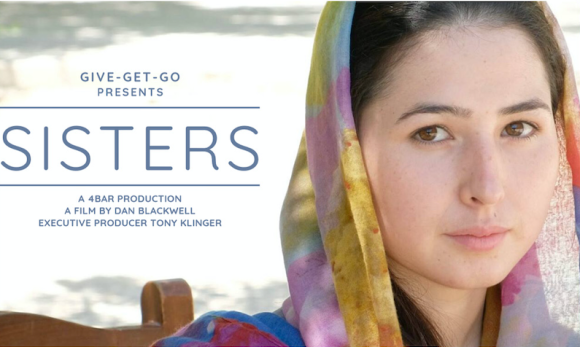Docu New
By Jo Phillips
Documentaries that change our minds our perceptions and our belief systems and make our world a better place. Research finds that growing your empathy leads to a more liberal ideology. “Some interesting new research finds that people are capable of working consciously to develop or change dimensions of themselves, including personality traits such as empathy. That, in turn, can affect their views of social and political issues. Specifically, this study found that efforts to increase empathy in your relationships or more broadly, towards others — including those of different life experiences and situations — can lead to changes in your political ideology towards more liberal values”. We know all artistic endeavours enable us to learn and grow but documentaries are often the simplest way to convey knowledge that needs to be shared. It is often in these scenarios that we learn about things in the world we just were not aware of. When we share what we know we make the world a richer better safe place. There is no artifice about sharing important information even if it si through a medium, of ‘entertainment’. Find out more in Doc New
How to survive a plague – David France
“Angry, powerful, and stirring, How to Survive a Plague is a brilliantly constructed documentary about the activists who pushed for action to combat the AIDS epidemic”

A 2012 American documentary film about the early years of the AIDS epidemic, and the efforts of activist groups alongside researchers who were trying to find a way to stop HIV/aids. a film about bravery in the battle to bring about change. It was directed by David France, a journalist who covered AIDS from its beginnings.
The documentary was produced using more than 700 hours of archived footage which included news coverage, interviews as well as film of demonstrations, meetings and conferences. France says they knew what they were doing was historic, and that many of them would die.
Beginning at the start of the HIV/AIDS epidemic in New York City, the documentary follows a group of AIDS activists and founders of the AIDS group ACT UP and follows their struggle for a response from the United States government and medical establishment in developing effective HIV/AIDS medications.
Activists took it upon themselves to convince the FDA to approve drugs that could slow or even halt the AIDS virus, and demanded that drug trials (which would usually take 7–10 years) be shortened so potentially life-saving treatments could be made available. The film also documents the underground market for HIV drugs: many people relied on drugs imported from other countries, which were believed to potentially slow down the HIV virus despite not being FDA-approved.
At the time, the only drug available to slow the progression of HIV was AZT, which in many cases was toxic to HIV-infected people, and in some cases even caused blindness. The cost of AZT was about $10,000 per year in the late 1980s. ACT UP’s efforts led to the creation of the International AIDS Conference. Eventually, DDI, an alternative to AZT that did not cause blindness, was released by the FDA despite not going through a full-length safety trial.
HIV activists also protested the immigration policies banning HIV-positive people from immigrating to the United States as being discriminatory and homophobic.
When existing drugs proved ineffective as a treatment for HIV, TAG lobbied for more research into the HIV virus. In 1996, protease inhibitors were released. These consist of a combination of drugs that lower the HIV viral load in patients more than any drug had before. It was considered a breakthrough in HIV and AIDS research and continues to be used as a treatment for HIV and AIDS. (ultimately referred to as combination therapy)
The documentary included interviews with HIV activists, physicians and members of underground organizations as well as clips of the protests, meetings and news coverage taking place during the 1980s and 1990s.
Period. End of conversation.
“The interjection period, which is always used at the end of a sentence, means “And that’s all there is to say.” It implies finality. There can be no discussion or questioning”.
A 2018 documentary short film directed by Rayka Zehtabchi about Indian women leading a quiet sexual revolution. The documentary short follows a group of local women in Hapur, India, as they learn how to operate a machine that makes low-cost, biodegradable sanitary pads, which they sell to other women at affordable prices.
The idea for the documentary began after a group of female students at Oakwood High School in Los Angeles set out to find a way to keep young girls in India in school after they started their periods.
The Los Angeles high school students, led by teacher Melissa Berton, held bake sales and launched Kickstarter campaigns to supply schools in India with pad machines, locally-manufactured machines that can produce sanitary pads for an entire rural village, according to Netflix, where the documentary is now available.

Around two years ago, they brought on Zehtabchi, at the time a recent graduate of USC’s film school, to produce a documentary they hoped would help raise money for the pad machines and put a spotlight on menstruation discrimination. It costs $11,000 for each machine and one year’s worth of supplies, according to Zehtabchi.
Women in India were using rags and leaves and even ashes to deal with their period. They were dropping out of schools, hiding from society, because of a simple period.
Indian woman may well have been told to desist from touching or staining or entering spaces while on their period, temples and other religious sites are off-limits and even in certain homes, so are kitchens. This is such a normalized phenomenon, that most Indian women will not blink at it. They often find that sanitary pads are wrapped in newspaper in shops such is the general sense of shame.
This documentary shows the progression and transition from crippling shame at their own menstrual cycles of creating the beginnings of a microeconomy, based on a low-cost sanitary napkin machine. Arunachalam Muruganantham, an entrepreneur famously created the pad machine to spare his wife the trauma of having to reuse unhygienic rags for her period.
The film helped change not just women’s lives in India but many but highlighting for movements that VAT must not be charged on sanitary products as they are a necessity not a luxury.
The Thin Blue Line – miscarriage of justice.
Highly recommended testimony to the dangers of shoddy police investigations. Described more like a waking nightmare than a docudrama. The film is a true story of murder and justice evidently miscarried, wrapped in the fictional haze of a surrealistic whodunit, it will leave you in a trance for days.
A 1988 American documentary film by Errol Morris, about the trial and conviction of Randall Dale Adams for the murder of Texas police officer Robert Wood. Randall Dale Adams (was an American who was wrongfully convicted of the November 28, 1976 murder of Dallas, Texas police officer Robert W. Wood and sentenced to death. His conviction was overturned in 1989.
The film centered around the “inconsistencies, incongruities and loose ends” of the case, and through his investigation, not only comes to a different conclusion, actually obtained an admission of Adams’ innocence by the original suspect of the case, David Harris.
The “thin blue line” in the title “refers to what Mr. Morris feels is an ironic, mythical image of a protective policeman on the other side of anarchy”
The film presents a series of interviews about the investigation of the shooting of Dallas police officer Robert Wood and a re-enactment of the crime based on the testimony and recollections of Adams, Harris (the actual murderer), the judge presiding over the case (Donald J. Metcalfe), and several witnesses (including Emily Miller and R. L. Miller), as well as detectives (including Gus Rose, Jackie Johnson, and Marshall Touchton).
It was suggested that Adams was charged with the crime despite the evidence against Harris because Harris was a juvenile at the time, whereas Adams, as an adult, could be sentenced to death under Texas law.
As a result of the publicity around the film, Adams (whose death sentence had been overturned by the U.S. Supreme Court in 1980 and subsequently commuted to life in prison by the Governor of Texas. He had his conviction overturned by the Texas Court of Criminal Appeals, and the case was returned to Dallas County for a retrial. The district attorney’s office declined to prosecute the case again and Adams was subsequently ordered released as a result of a habeas corpus hearing in 1989.
SISTERS Dan Blackwell
In a country where it is scorned upon for women and girls to play music, a group of young women risk their lives every day to pursue their passion, both for music and gender equality in Afghanistan. They play in an Orchestra.
https://www.aplfilm.com/films/sisters.html
“Sisters” follows UK musician, Dan Blackwell to Kabul to meet Afghanistan’s first-ever female orchestra, ‘Zohra’. Zohra is Afghanistan’s first all-female orchestra. Every member of this orchestra has faced terrible adversity to play music. Dan learned about Zohra online and got in contact with them first via Facebook and then followed with an email.
“Sisters” is a real-life story with many emotional highs and lows as it tackles serious, dark themes. However, this documentary fills the viewer with hope for a stronger connection to people who usually only feature in distant news stories. “Sisters” looks into the lives of the Zohra members and their two young leaders

NEGIN KHPALWAK
Negin is the Conductor of Zohra. At 20 years old she is the oldest member and the leader of the Zohra Ensemble. She sticks with and leads Zohra as the country’s first female conductor despite multiple death threats and family disputes. Zarifa is nowhere to be seen until Dan tracks her down. Discovering her precarious situation, Dan stays with her as she prepares to flee Afghanistan leaving close friends and family behind.
ZARIFA ADIBA
Along with Negin, Zarifa was the outspoken second leader of Zohra until she fled the country during the production of this film.
Although at the moment music is not forbidden in Afghanistan, under the Taliban regime it was banned completely and will probably be banned once they return.
There is, however, still much violence against women and such cases are seldom prosecuted due to pressure from family members, and there are very few services available to people seeking to escape violence.
There is also very little female representation in the Afghan government (with only female 5 members) which risk critical issues for women being unaddressed in the peace talks and their rights are unlikely to improve.
Under the Taliban regime, women in Afghanistan were not only excluded from the public sphere but subjected to a suppressive regime against women’s rights. Having created an environment of pervasive fear, the Taliban imposed compulsory and heavy veiling for women, opposed education and employment for girls and women, and restricted their mobility as women were only allowed to go outside of the houses when accompanied by male relatives or risk severe punishment.
Although there are several organisations trying to improve women’s rights in Afghanistan many challenges for women still exist.
Sisters, the documentary is available to watch an online at the Northampton film festival Q&Awith the film’s Producer Tony Klinger Director Dan Blackwell at 6 pm on Friday 14 May – here Also to be shown at the Atlanta film Festival June 18th, 19th, 20th
# sistersinmusic #musicisfreedom
Find out more at the Sister website Here
If you enjoyed Docu New then why not read Travel Perfume Here



